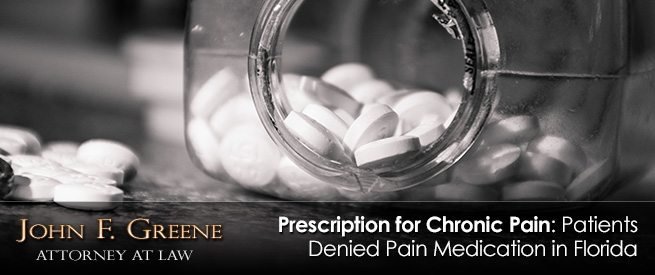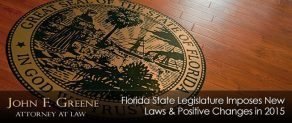
To curb opioid abuse by drug addicts and drug dealers in Florida, the state passed legislation in 2010 requiring pain medication centers to be doctor owned and registered with the state.
About 10 years ago, Florida was the epicenter of opiate misuse, and the physicians purchasing the highest amounts of oxycodone were located in Florida. In addition, the state established a Prescription Drug Monitoring Program (PDMP). According to a report in JAMA Internal Medicine, these new policies resulted in a 1.4 percent decrease in opioid prescriptions.
DEA Prescription Laws and Collateral Damage
At the same time, a public health crisis has been created by the new laws. Many patients with legitimate physician prescriptions for pain medication are often turned away at pharmacies. The legislation to put pill mills out of business has caused some serious collateral damage in Florida. Countless Floridians with chronic pain, cancer and autoimmune diseases are being forced to live a life of pain. Those with legitimate medical needs are either turned down or have to go to over 10 pharmacies to eventually find one that will fill their doctor prescription. Jacksonville pharmacist Bill Napier says that they have to turn down about 30 people every day. And while the DEA states that they don’t set quotas for pain medication, Bill Napier says that his wholesalers say that they set quotas in response to pressure from the DEA. Still, he finds that they are having to ration all controlled substances.
Pharmacist Bill Napier has created a nine-item checklist to fill prescriptions. In order to get a prescription for a controlled substance like hydrocodone or morphine, you must undergo a criminal background check, be over 35 years of age and the doctor writing the prescription must be vetted. Only 20 percent of his prescriptions can be controlled substances. If you’re a new patient, it’s likely that you won’t be able to have your prescription filled, especially towards the end of the month. Many Florida pharmacists are fearful of penalties from the DEA. Congresswoman Corrine Brown has written to the DEA outlining the need for more defined guidelines about controlled substance prescriptions. It’s been six months, and there has been no response from the DEA. She plans to ask House leadership to schedule a hearing, so the issue can be properly addressed. Many in the medical field feel that part of the problem is the DEA itself. The DEA is both a regulatory body and law enforcement agency. This gives them a lot of power.
After months of taking the brunt for Florida’s prescription drug problems, the DEA held a hearing before the Florida Board of Pharmacy. DEA agents who testified stated they will create more educational materials to assist pharmacists in filling legitimate prescriptions. They pledged full support in seeing that patients receive their medications without any problems. And a follow-up hearing is planned to see what can be done to help those patients whose prescriptions were rejected.
Possession of Controlled Substances without a Prescription
Controlled substances like hydrocodone and oxycodone are considered Schedule III drugs under the Controlled Substances Act. They are only legally available with a doctor’s prescription. The government can impose a civil fine and criminal offense even if you only have a small quantity of a controlled substance without a doctor’s prescription.
If you’ve been charged with a controlled substance crime under the Controlled Substances Act, you need to contact a criminal defense attorney. An attorney can help you understand your rights under the law and advise you of any available criminal defenses.
Contact Destin Defense Attorney John F. Greene to receive the legal representation you need. Call 850-424-6833 or schedule a consultation online. Attorney Greene represents drug case defendants in Okaloosa, Walton, and Bay Counties in Florida.









